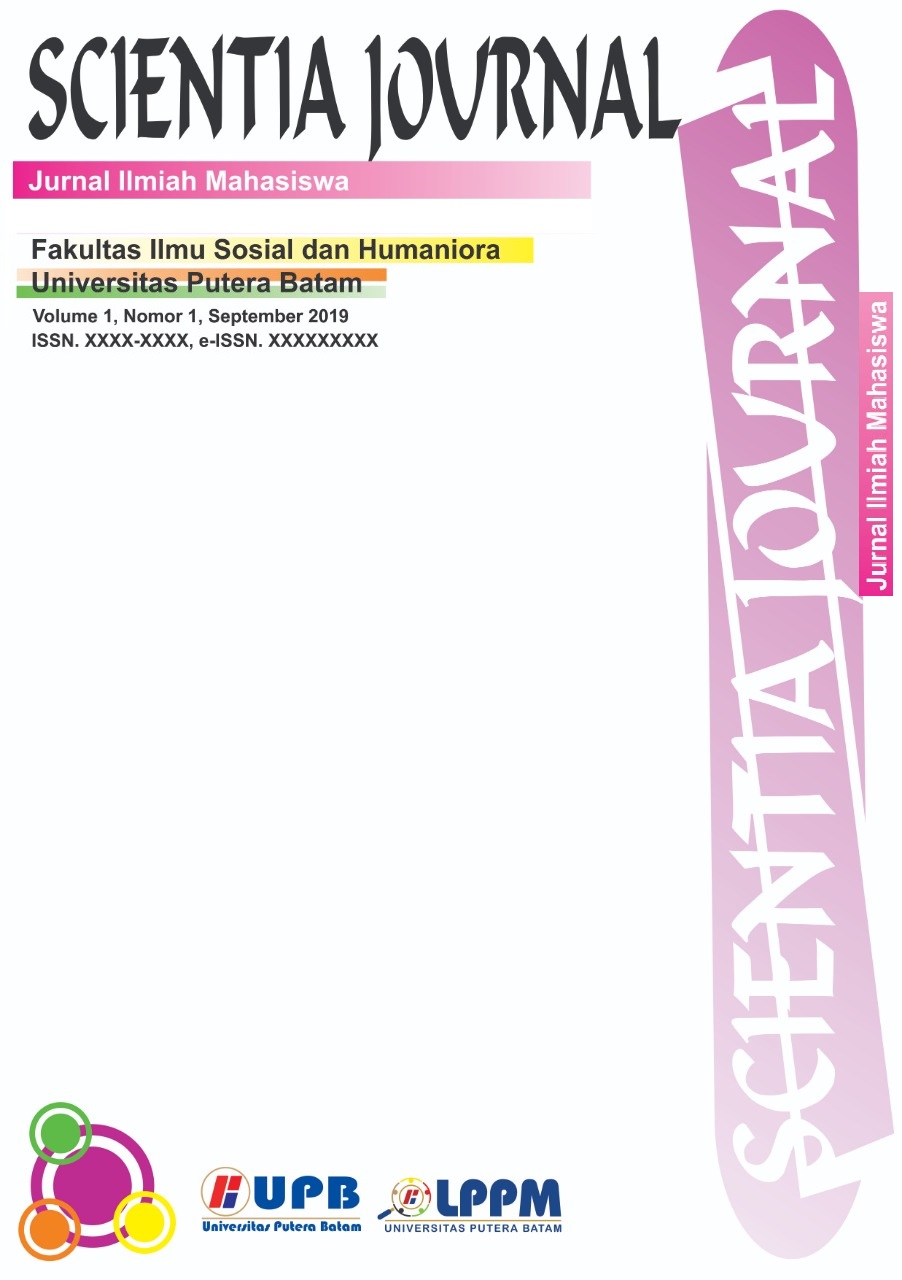PENGARUH KEBIJAKAN PAJAK, AKSES KEUANGAN DAN NIAT TERHADAP PERILAKU BERWIRAUSAHA MAHASISWA GENERASI Z DI KOTA BATAM
DOI:
https://doi.org/10.33884/scientiajournal.v7i4.10410Keywords:
Keywords: Tax Policy, Financial Access, Intention.Abstract
This study was conducted to examine the influence of factors influencing the Entrepreneurial Behavior of Generation Z Students in Batam City. These factors include Tax Policy, Financial Access, and Intention. This study used a quantitative approach where the data were obtained primarily by distributing questionnaires. The population in this study amounted to 36,065 students. The sample taken was 100 people using the Slovin formula with a 10% error rate. The testing techniques in this study consisted of descriptive analysis, instrument testing, classical assumption testing, multiple linear regression testing, and hypothesis testing with data processing using SPSS version 29. The results of this study state that Tax Policy, Financial Access, and Intention simultaneously have a significant effect on Entrepreneurial Behavior. The conclusion based on the results of the study is that H1 is accepted, H2 is accepted, H3 is accepted, H4 is accepted.
References
Aji, A. W., & Ausah, Y. (2021). Pengaruh Perubahan Tarif Pajak, Kebijakan Kemitraan, Dan Regulasi Pendanaan Bagi Umkm Terhadap Minat Berwirausaha. Amnesty: Jurnal Riset Perpajakan, 4(1), 183–187. https://doi.org/10.26618/jrp.v4i1.6320
Amelia, R. W. (2022). Analisis Theory of Planned Behavior Terhadap Niat Berwirausaha Mahasiswa Universitas Widya Dharma Klaten. 14, 35–44.
Angelina Yulia, Y., Khristiana, Y., & Octaviani, A. (2021). Start Up Entrepreneurship Intention In Students: Using Theory Of Planned Behavior Model Niat Berwirausaha Start Up Pada Mahasiswa: Menggunakan Theory Of Planned Behavior Model. Jurnal Ekonomi Dan Perbankan, 1(1), 129–135. http://e-journal.stie-aub.ac.id/index.php/probank
Asmoro, P. S., Aini, E. K., & Nurlaily, F. (2022). Tax Policy and Financial Access: Implications for Entrepreneurial Intention and Entrepreneurial Behavior Among Generation Z. Jurnal Akuntansi Dan Keuangan, 24(2), 57–67. https://doi.org/10.9744/jak.24.2.57-67
Dian Efriyenti, H. P. (2025). Pengaruh Kebijakan Pajak, Akses Finansial, dan Minat Berwirausaha Terhadap Perilaku Usaha Mikro Kecil dan Menengah. 14, 34–40. https://doi.org/10.35134/ekobistek.v14i1.876
Erawati, T., & Wati, R. E. (2021). Pengaruh Niat, Modal Sosial dan Peran Universitas Terhadap Minat Berwirausaha di Kalangan Mahasiswa. Ilmiah Akutansi, 12(2), 105–118. https://www.ejournal.unibba.ac.id/index.php/akurat/article/view/590/494
Gracia, N., & Puspitowati, I. (2025). PENGARUH PENDIDIKAN KEWIRAUSAHAAN TERHADAP NIAT BERWIRAUSAHA : SIKAP DAN KONTROL PERILAKU YANG DIRASAKAN SEBAGAI MEDIASI. 07(01), 197–205.
Jaya, I., Siregar, K., Amanda, T., & Syahputra, H. (2025). Kewirausahaan Dikalangan Gen Z : Suatu Kajian. 25(1), 239–243. https://doi.org/10.33087/jiubj.v25i1.5857
Olivia, G., Fasa, M. I., & Suharto, S. (2021). Strategi Pengembangan Usaha Kecil (Small Business) Di Kalangan Gen Z Berdasarkan Nilai – Nilai Ekonomi Syariah. Jurnal Riset Akuntansi Politala, 4(2), 83–94. https://doi.org/10.34128/jra.v4i2.80
Retnowati, E., & Putra, A. R. (2021). Analisis Hubungan Antara Efikasi Diri Dan Intensi Berwirausaha Mahasiswa. Jurnal Pendidikan Dan Kewirausahaan, 9(2), 591–601. https://doi.org/10.47668/pkwu.v9i2.318
Rizki Agung Putra, M., Firdausi Nuzula, N., & Khalid Mawardi, M. (2021). Pengaruh Orientasi Kewirausahaan Dan Akses Keuangan Terhadap Kinerja Usaha. Profit, 15(01), 84–94. https://doi.org/10.21776/ub.profit.2021.015.01.9
Sultan, M., Pahlevi, W., & Ahmadi, H. (2025). Pengaruh Literasi Keuangan dan Akses Keuangan Terhadap Pertumbuhan UMKM Bidang Kuliner di Kota Semarang Melalui Pendanaan Eksternal Sebagai Variabel Intervening. 7(3). https://doi.org/10.32877/eb.v7i3.2153
Wardani, S., Kurniawan, R., & Haryono, H. (2024). Teori Atribusi: Memahami Hubungan Kualitas Layanan, Pemahaman Perpajakan, Implementasi Sanksi dan Kepatuhan Pajak. Jurnal Riset Akuntansi & Perpajakan (JRAP), 11(1), 183–197. https://doi.org/10.35838/jrap.2024.011.01.13















